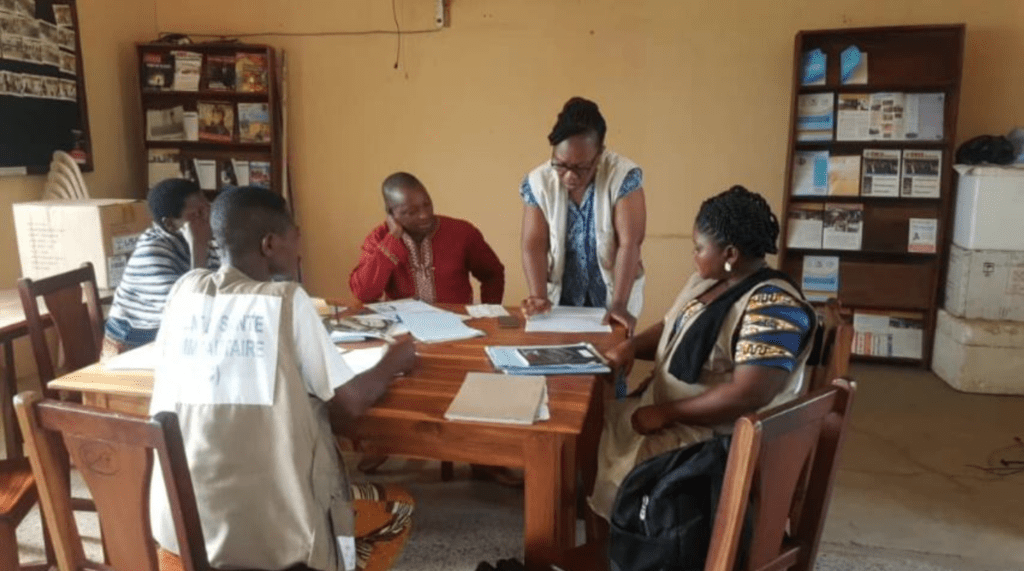
I was honoured to be among those recognized at the Heroines of Health gala hosted by Women in Global Health on the sidelines of the World Health Summit. While this award shed much-needed light on traditionally unrecognized women leaders, it also reminded us that global inequities continue to shape the face of global health. As a Togolese woman with a Togolese passport, my application for entry to Germany was denied and I was unable to travel and participate in the gala organized to celebrate my achievements. I was not the only leader who faced challenges to participate in the high-level meetings in Berlin. If global health events are to be truly global, then they must seek to include all voices regardless of LMIC status.
But power imbalances and sharp gender imbalances in global health are nothing new. Consider that women represent 70% of the health workforce, yet only account for 25% of senior leadership positions. Women health workers face harassment, low pay, and unsafe working conditions. As patients, women are denied their right to make well-informed and independent decisions about their own health and own bodies. Whether as providers or patients, we are placed at a disadvantage by patriarchal structures, which not only causes us harm but also undermines efforts towards Universal Health Coverage and achieving SDG3 “Good Health and Well-Being”.
Unfortunately, I know these challenges all too well. Born and raised in Togo, I began my journey on the frontlines of healthcare delivery over twenty years ago as a physician’s assistant at a health center in Kouvé, located in the Yoto district in Togo. This is where I first delivered reproductive health and HIV/AIDS care to women. I have been fighting for reproductive justice and against HIV ever since.
Over the course of my career as a medical provider, advocate, and champion of LGBTQIA+ and women’s rights, I have witnessed the injustices and suffering that women face daily. In Togo, women are not allowed to make health decisions for themselves or their children. They must act upon their husbands’ approval. It is a constant and daily battle for women’s health and rights.
I could not stand still in the face of this injustice. Following my first experience of working in Kouvé, I went on to help launch a reproductive health program deploying women as Community Health Workers in remote areas of Togo to deliver community-based distribution of contraception, HIV screening, and treatment. Thanks to programs like this one, Togo has seen a drop in HIV prevalence to 1,9%. Now in my role at Integrate Health, I use my experience as a frontline health worker to partner with the Ministry of Health to advance their Universal Health Coverage goals. In my free time, I volunteer extensively, including to train policemen about abortions so they can inform and support women, support the rollout of sex education programming in schools across the country, and advise several LGBTQIA+ organizations working throughout West Africa.
I am not the only woman who has dedicated her life and career to tackling health challenges. Many women like me are using our deep personal experience to drive change on a national and global scale. Yet, our stories remain untold, our accomplishments overshadowed, and our voices unheard. Initiatives like Heroines of Health are critical to recognize and celebrate outstanding women, and also to provide us with a platform to be heard. Our knowledge must be harnessed to inform strong health systems for all.
With this year’s gala held on the sidelines of the World Health Summit, the event presented an opportune moment for awardees to bring their expertise and call for change from global leaders. While some made it to Berlin, others like me did not. After weeks of preparation, paperwork, and administrative procedures, my visa application was denied. So, while I continue to hold my head up high and celebrate women’s extraordinary achievements in global health, I want to acknowledge that existing global inequities hinder real participation. If we truly wish for global health convenings like the World Health Summit to be rich, inspiring, and effective forums, we must ensure better accessibility to people from all across the global south. We must consider hosting global convenings in areas of the world where all are welcome. Without women leaders from all countries present in the room, “Good Health and Well-Being” is just wishful thinking.
Having witnessed Anita’s work over the years, I feel sorry for those denying her the visa to travel. Their double standards are working against the values they pretend to promote. Congratulations Anita! We will leave them behind.